How to Invest in Dow Jones Industrial Average (DJIA)?

8 minutes for reading
The Dow Jones Industrial Average (DJIA) is one of the oldest and most famous stock indices in the world. It is included in the top three US indices, boasting the best market capitalisation among them. In this overview, we will demonstrate what companies are in the Dow Jones Industrial Average index today and describe some general investment options.
History of Dow Jones Industrial Average (DJIA)
The DJIA was created in 1896 by a journalist – the editor of the famous Wall Street Journal, Charles Henry Dow – alongside his business partner, Edward Davis Jones. Charles Dow used the average for tracking the stock dynamics of the leading high-revenue companies in the US. When launched in 1896, the index consisted primarily of industrial companies producing and selling oil, gas, sugar, tobacco, cotton, etc.
Particularly, the following companies were included in the DJIA at the start:
- American Tobacco
- American Sugar
- American Cotton Oil
- Chicago Gas
- General Electric
- Distilling and Cattle Feeding
- Laclede Gas
- National Lead
- North American
- Tennessee Coal, Iron, and Railroad
- S. Rubber
- S. Leather
The index has changed several times. In 1916, the list of companies was extended to 20, and in 1928 the list included 30 companies, which is the current total. During the Great Depression of the 1930s, the list underwent reshuffling because many companies had gone bankrupt. In 1932, 8 members of the index were replaced by large-cap companies such as Coca-Cola, and The Procter & Gamble Company.
There were also updates to the calculation formula of the index. When the DJIA was launched, it only indicated the arithmetic mean of the 12 stocks it contained. Today, we use the Dow correction factor, which accounts for structural changes in the companies.
What companies in the Dow Jones Industrial Average (DJIA) today
For a company to be included in Industrial Average (DJIA), it must be a significant part of the US economic activity. Also, it must be registered in the NASDAQ or the NYSE, and be one of the largest industrial companies in the country.
The 30 companies of the index boast the highest capitalisation and ratings of reliability. Today, the DJIA (US30) includes the following companies:
- The Coca-Cola Company (KO)
- McDonald's Corporation (MCD)
- The Walt Disney Company (DIS)
- Merck & Co., Inc. (MRK)
- International Business Machines Corporation (IBM)
- Johnson & Johnson (JNJ)
- The Boeing Company (BA)
- UnitedHealth Group Incorporated (UNH)
- The Home Depot, Inc. (HD)
- Intel Corporation (INTC)
- Cisco Systems, Inc. (CSCO)
- 3M Company (MMM)
- Microsoft Corporation (MSFT)
- The Procter & Gamble Company (PG)
- Dow Inc. (DOW)
- Verizon Communications Inc. (VZ)
- NIKE, Inc. (NKE)
- The Travelers Companies, Inc. (TRV)
- Walmart Inc. (WMT)
- Honeywell International Inc. (HON)
- Visa Inc. (V)
- JPMorgan Chase & Co. (JPM)
- American Express Company (AXP)
- Caterpillar Inc. (CAT)
- Chevron Corporation (CVX)
- Salesforce.com, inc. (CRM)
- The Goldman Sachs Group, Inc. (GS)
- Amgen Inc. (AMGN)
- Apple Inc. (AAPL)
- Walgreens Boots Alliance, Inc. (WBA)
The risk associated with an investment in these companies is rather small because they are very reliable. Nonetheless, their stock prices can fluctuate significantly when volatility in financial markets is on the increase. Hence, the investment instruments used for trading Dow Jones Industrial Average (DJIA) can entail either significant short-term losses or profits.
For the DJIA, a weighted price calculation with the Dow correction factor is used. This method gives more weight to stocks with higher prices. As such, any changes in the stock prices of companies with a high share price will influence the whole index significantly. The list of the companies is revised from time to time.
Ways to invest in Dow Jones Industrial Average
The DJIA is a high-liquidity asset for trading and investing. For investing, you can use various financial instruments depending on your strategy: stocks, options, futures, CFDs, ETFs.
Buying stocks from the DJIA index
As an investor, if you decide to collect a portfolio of Dow Jones Industrial Average (DJIA) stocks on your own, you will need to buy at least one stock of each company from the index. This will be costly due to the high price of certain stocks from the index. Moreover, you will have to constantly watch the market, re-balancing your investment portfolio. The advantage with this investing option is that you will also have your dividends paid out to you.
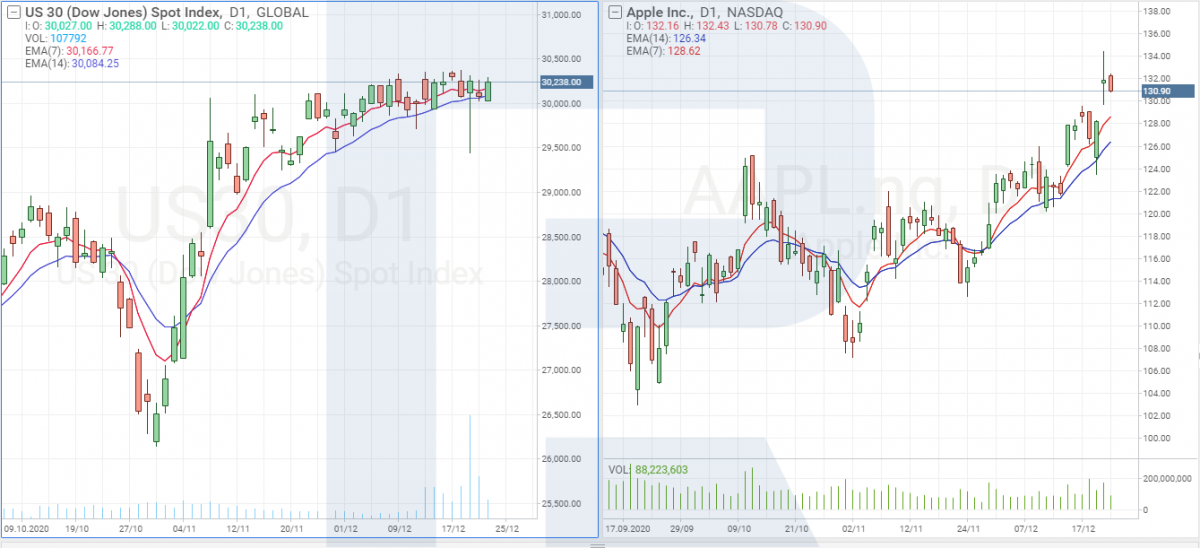
Futures and options for DJIA
Futures and options are standardised stock derivatives for the DJIA. Buying them can be interpreted as a trade with a whole portfolio of stocks from the index. Note that you would only receive contracts for your stocks – not the actual stock.
Derivatives allow experienced investors to use complex strategies with different combinations of futures and options. As a rule, these instruments are used for rather short-term investing – six to twelve months. Long-term investing require changing contracts that are expiring for new ones, which might deteriorate your overall result.
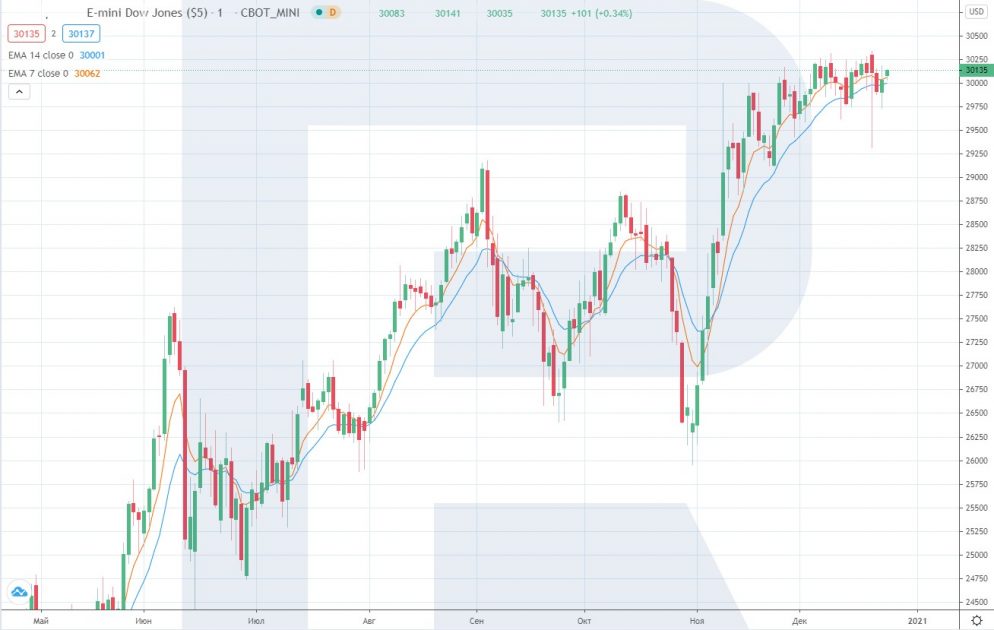
DJIA ETFs
ETFs stands for Exchange Traded Funds, which means trusts that have their stocks traded in an exchange. You can trade ETFs in the same way you trade normal stocks. When buying an ETF for Dow Jones Industrial Average index, you buy a mini portfolio of stocks included in the index. There are several ETFs for investing in DJIA. The SPDR Dow Jones Industrial Average ETF (DIA) is a prominent example.
The DIA is a solid and accessible investment instrument. Its performance in December 2020 was as follows:
- Profitability since the beginning of the year – 7.25%
- Commission fees – 0.16%
- Yearly dividend profitability – 2.07%
- Managed assets – 25.4 billion USD
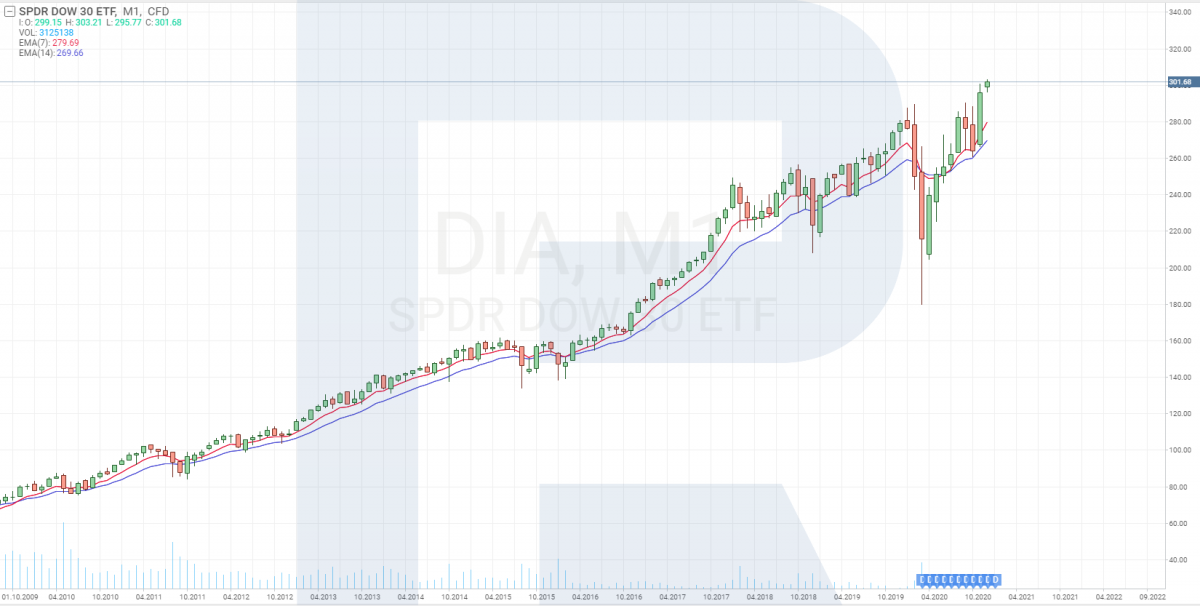
RoboMarkets clients can invest in SPDR DOW 30 ETFs in the R StocksTrader platform Trading operations are available both with CFDs and ETFs** with all corporate events, including dividends.
DJIA CFD
Another investment instrument is a CFD, or Contract for Difference. In essence, this is a contract for a price change of the base asset, which in our case is the Dow Jones Industrial Average (DJIA) index. A well-known CFD among traders is the US30IndexCash, which is a synthetic index based on the nearest futures contracts for the DJIA.
The advantages of the US30 are no expiry date (it is traded all the time, which means you can hold your position open for as long as you wish), quite high leverage of 1:100 (which allows you to trade the index even with small deposits), and almost 24/5 trading time. Among the disadvantages, are the swap/rollover commission fees.
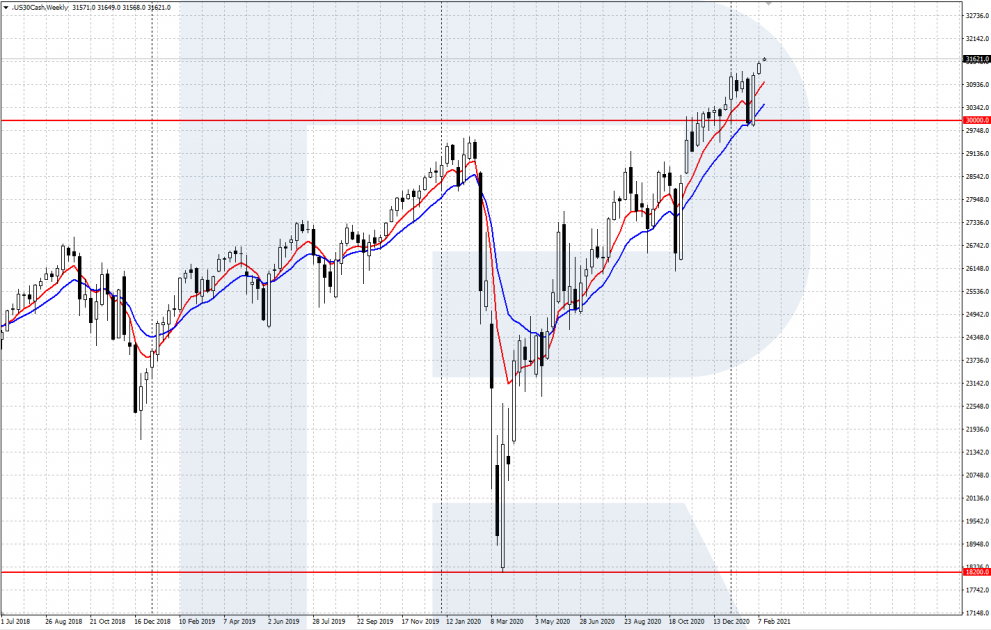
RoboMarkets clients can invest in the CFD for US30IndexCash in MetaTrader 4, MetaTrader 5, R StocksTrader, and R WebTrader.
Closing thoughts
The Dow Jones Industrial Average (DJIA) includes the stocks of the 30 leading large-cap companies in the US. While it indicates the economic situation in the US, it is also an investment instrument. Thanks to the various financial instruments (stocks, futures, ETFs, options), you can use a variety of strategies with the DJIA. The choice is yours, just never forget about the risks involved.
* - Past performance does not predict future returns.
** - Pure ETFs are available for professional clients only.
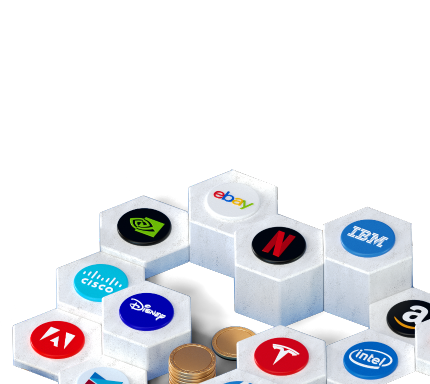
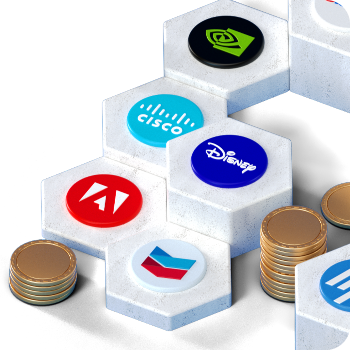
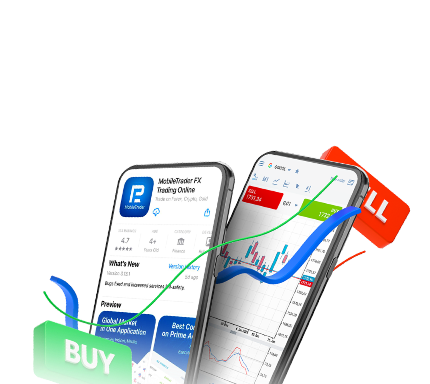




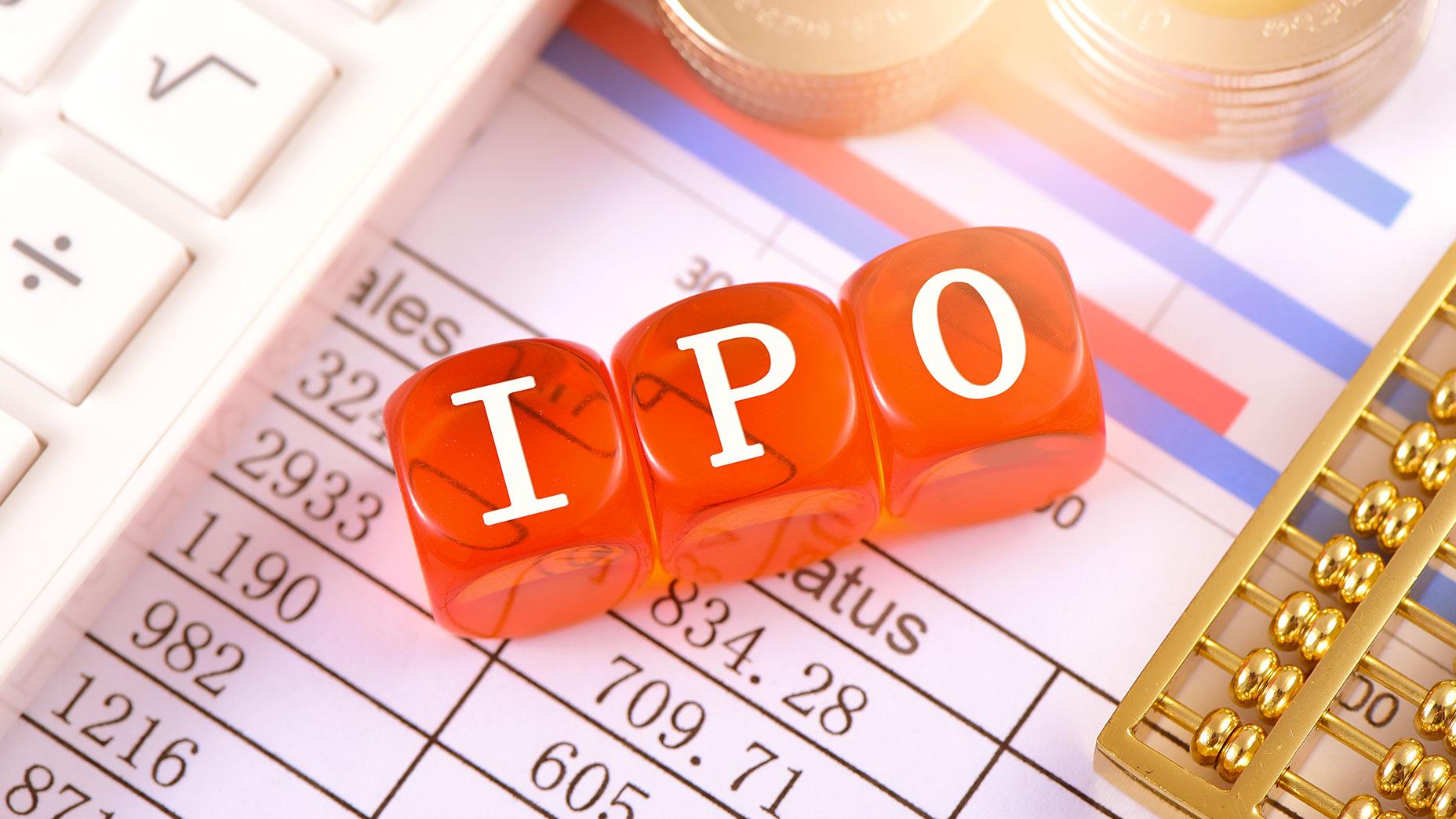
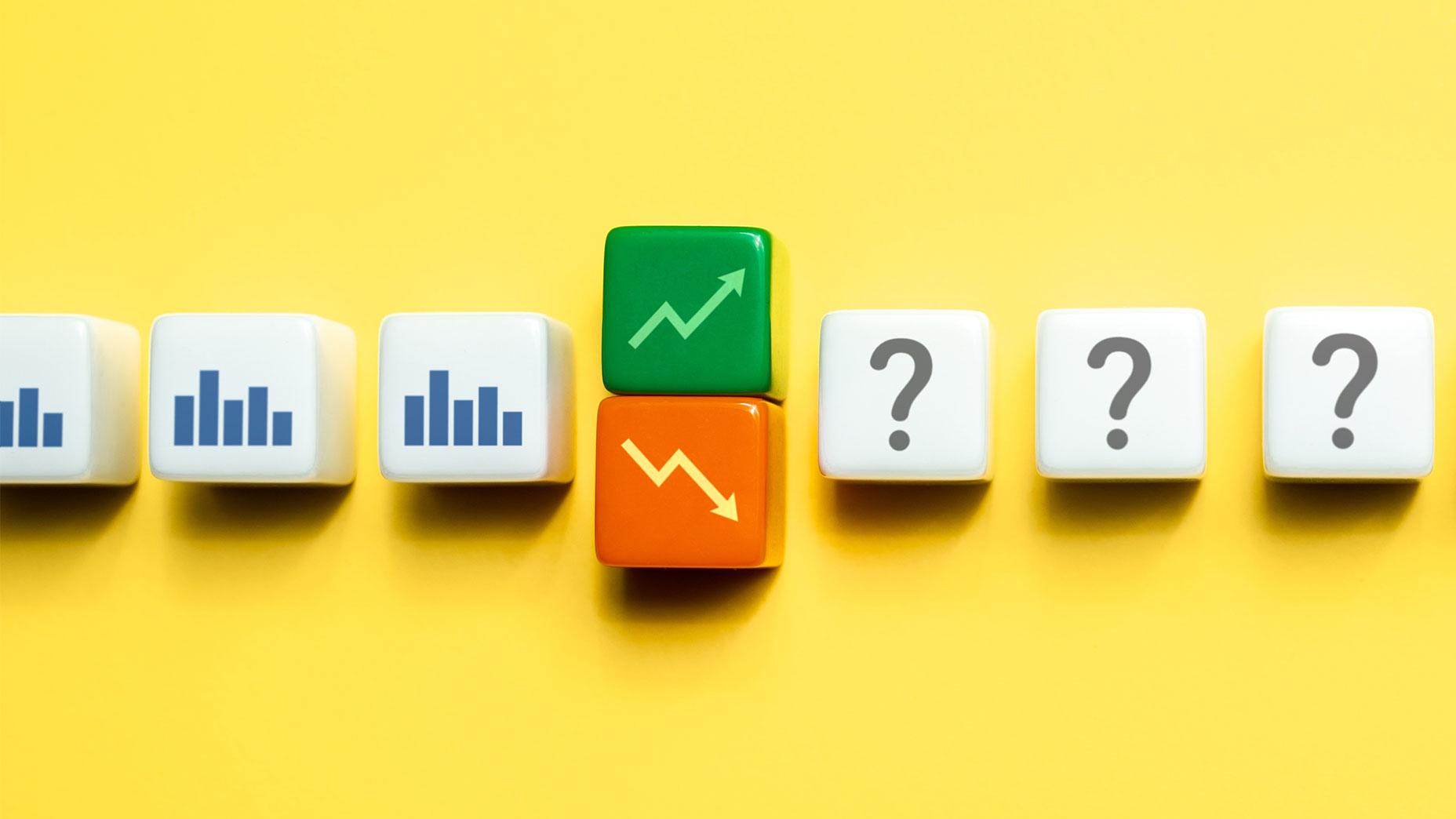





 are complex instruments and come with a high
are complex instruments and come with a high  of losing
of losing  rapidly due to
rapidly due to  . 65.68% of retail investor accounts lose
. 65.68% of retail investor accounts lose  when trading
when trading  with this provider. You should consider whether you understand how CFDs work and whether you can afford to take the high
with this provider. You should consider whether you understand how CFDs work and whether you can afford to take the high
I found these information so useful
How about trading Cash Indices offered by some off brokers like FXCM. Dividend is also paid.
Hi Shahzad, thank you for the comment. You can buy US Dow Jones Index Cash CFD. More information about available assets you can find in this page - https://roboforex.com/forex-trading/trading/specifications/.